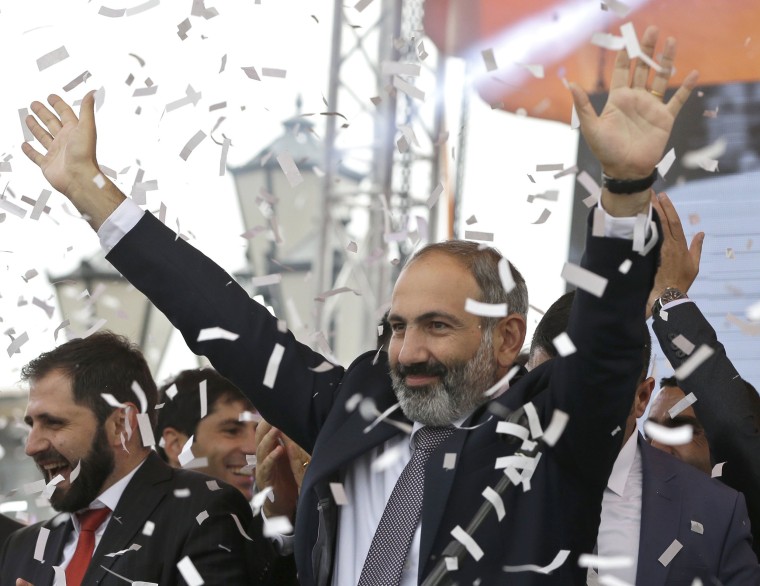YEREVAN, Armenia — The leader of protests that gripped Armenia for weeks was named the country's new prime minister on Tuesday, overcoming the immediate political turmoil but raising uncertainty about the longer term.
The parliament's approval of Nikol Pashinian by a 59-42 vote capped a fast-moving month of massive protests, the surprise resignation of the prime minister and political maneuvering.
Pashinian is a 42-year-old former journalist who has spent time in jail on charges of fomenting unrest in the ex-Soviet state.
Many Armenians have stewed for years about the country's poverty and widespread corruption, but Pashinian was able to galvanize the discontent into a mass movement that was occasionally raucous but largely peaceful.
"We chose a new road in Armenia."
The protests focused on former leader Serzh Sargsyan's transition from president to prime minister, a move that opponents saw as effectively allowing him to remain the ccountry's leader indefinitely.
Sargsyan was president for a decade, but stepped down this year because of term limits. However, Armenia has changed its government structure, giving the prime minister more power at the expense of the presidency.
Soon after Sargsyan stopped being president, he was named prime minister by the parliament, where his Republican Party has the majority of seats.
Faced with the mass protests, Sargsyan left the premiership on April 23, six days after his election. In a concession last week, the Republicans agreed to support any prime minister candidate nominated by a third of the parliament members, paving the way for Pashinian's election.
On the capital's central square, supporters were ecstatic on Tuesday after the vote.
"We chose a new road in Armenia where the driver will be the people and not clans. Jobs will appear, people will return, corruption will disappear," said demonstrator Tigran Azizian, a 42-year-old worker in the city's subway.

But for all the delight, Pashinian faces significant challenges, not least that the Republicans remain a sizeable majority in parliament.
The intense hopes that Pashinian's supporters invested in him could fade fast if he does not move decisively to implement changes and call snap elections that could drive the Republicans from the majority.
Russian President Vladimir Putin later congratulated Pashinian. Moscow has strong strategic interests in Armenia, including a military base, and had been watching the country's political turmoil closely.
Pashinian has vowed to keep close ties with the Kremlin. But Russia is wary that Armenia could go the same way as Ukraine in 2014, where an uprising swept to power new leaders who moved their country closer to the West.
